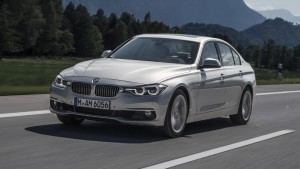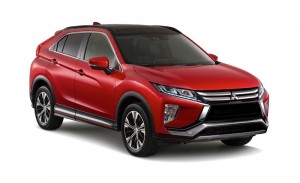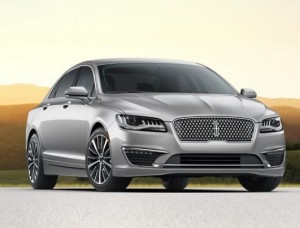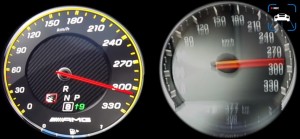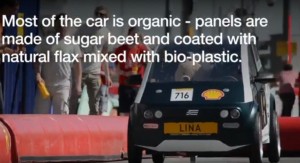Daily Archives: July 2, 2017
BMW Prepares to Challenge the Tesla Model 3
The Tesla Model 3 is set to be revealed this month. Looming in the scene is BMW with its plan to launch an all-electric sedan to take on the company led by Elon Musk.
According to Trusted Reviews, citing German publication Handelsblatt, BMW has set its sights on introducing a car that will rival the Tesla 3 and the company will reveal it at the Munich Auto Show in September.
The Tesla Model 3 challenger will come from the 3 Series range of BMW. The fully-electric sedan will be the company’s first in its bid to enter the electric vehicle segment of the market, which is dominated by Tesla.
The source claimed that the electric 3 Series will have a range of at least 400 kilometers. No other details have been revealed yet though. It should be noted too that BMW had not released an official statement about the matter so take this with a grain of salt.
At present the BMW 3 Series saloon car has a starting price of £25,740. An electric variant of the vehicle might cost more than that due to the cost of developing and manufacturing one. Add to that the expenses of sourcing parts like the battery and electric motor. On the other hand, the German luxury automaker might not jack up the value of the coming EV too much so that it will be competitive with the pricing of the Tesla Model 3.
The BMW 3 Series has been in production since 1975. The product is the entry-level luxury car of the German automaker. The vehicle is currently in its sixth generation model.
A plug-in hybrid model of the 3 Series was introduced last year. The car has gained good reviews so for its design and easy-to-use features. We think it is just right for BMW to follow up on its success by producing its new EV under the 3 Series platform.
3 Key Features of the 2018 Mitsubishi Eclipse Cross
For an estimated starting price of $21,000, is the 2018 Mitsubishi Eclipse Cross worth every penny?
1. Design
Just when we thought that the Eclipse moniker is already dead after its production ended in 2011, Mitsubishi just revived the name for its new crossover utility vehicle (CUV). According to CarAndDriver, the company’s reason for carrying the name for their new product is its sloping roofline that is one of the key distinguishing features of the Eclipse coupe.
The Eclipse Cross sits between the Outlander Sport and the Outlander models in the hierarchy of Mitsubishi vehicles. The Eclipse Cross shares the same wheelbase measurement with the mentioned models at 105.1 inches.
The reviewer complained that the Eclipse Cross adopted too many styling factors from the Outlander and the Outlander Sport. The CUV only had a few design elements that set it apart from the two. In addition, the front grille of the auto bears a striking resemblance with the shape of the Lexus NX’s radiator grille.
2. Engine
The Eclipse Cross carries a 1.5-liter inline-four engine. The European model of the unit churns 161 hp at 5,500 rpm and 184 lb-ft of torque at 1,800 rpm. The company hadn’t released information yet about the configuration of the model bound to the U.S. but expect it to possess a boost in power.
The speed of the Mitsubishi CUV is delivered by a six-speed manual gearbox to the front wheels. The one in the U.S. market will likely come with a continuously variable transmission (CVT) and an all-wheel version of the auto is also possible.
3. Interior
The cockpit of the Eclipse Cross is a notch up compared to the Outlander. Then again, it was criticized for its heavy use of hard plastic and poor visibility of some of its controls. Despite that, the improved 7.0-inch touchscreen, head-up display, 360-degree camera, touchpad controller and adaptive cruise control make up for the issues.
The infotainment system of the CUV can be integrated with Android Auto and Apple CarPlay. However, it lacks a native navigation system.
Top 3 Features of the Entry-Level 2017 Lincoln MKZ
The 2017 Lincoln MKZ is its brand’s entry-level, mid-size, luxury sedan. With a starting price of $35,170 for its Premiere trim, the car has a lot of new features for buyers.
1. Design
Appeal is the primary selling-point of luxury cars, and the Lincoln MKZ certainly does not disappoint. While the 2017 version is merely a facelift of the car’s second-generation model, it adds a lot of flavors to be desired by customers.
Among the notable upgrades of the auto include the lighting system, front grille and set of 18-inch 5-spoke aluminum wheels. Going inside reveals the more advanced Sync 3 infotainment system and high-end leather surfaces that can be further improved when getting the more expensive Black Label variant offering more opulent leather upholstery, stitching and wood trim.
2. Engine
The Lincoln MKZ is packed with a 2.0-liter turbocharged inline-four engine capable of 245 hp. It is paired with a 6-speed SelectShift automatic transmission gearbox with paddle shifters. The range-topping trim raises the bar with its 3.0-liter twin-turbo V6 engine churning 400 hp.
3. Driving Performance
The suspension of the Lincoln MKZ has been updated to include the AdvanceTrac electronic stability control (ESC), Auto Hold, Electric Power-Assisted Steering (EPAS) and Continuously Controlled Damping (CCD). The new feature results to better maneuverability for the car, and more comfortable ride for the driver and the passengers of the vehicle.
Other Versions and Trims
The things mentioned above are just a taste of what the most affordable version of the 2017 Lincoln MKZ has to offer. Buyers of the Premiere model who want more can get the hybrid or 3.0-liter variant of the car.
Versions higher than the Premiere trim are available too, which further cater to more meticulous buyers or those who are searching for high-performance options. The other variants of the Lincoln MKZ are the Select, Reserve and the special Black Label models.
Battle of Top Speed: BMW M6 Gran Coupe Vs. Mercedes-AMG E63 S
The 2017 models of the BMW M6 Gran Coupe and the Mercedes-AMG E63 S surely scream “high-performance”. Being products of the top producers of luxury vehicles in the world, many car enthusiasts dream about having one of them in their garages.
In the video posted below, we will see how the two fare in terms of their top speeds. But before that, let us take a look at the engine specs of the two.
BMW M6 Gran Coupe
The Bimmer packs a 4.4-liter twin-turbo V8 engine. The unit has an output of 600 hp and 700 Nm of torque. The numbers push the auto from a standstill to 100 km/h in just 3.9 seconds. The top speed of the car is electronically-locked at 300 km/h but the Competition Package fitted in it increases it to 305 km/h.
Mercedes-AMG E63 S
The AMG E63 S has a 4.0-liter biturbo V8 engine. The power unit is capable of producing 12 hp more than the M6 Gran Coupe and its torque is 150 Nm more than its rival. The figures allow the Merc to accelerate from zero to 100 km/h in mere 3.4 seconds. The maximum speed of the performance car is electronically-capped at 300 km/h.
Video
Watch the video below to see how each car fares when pushed to its limits:
And the Winner Is… (Spoiler Alert)
Both cars delivered their promise to deliver around 300 km/h. The dials of the two indicate that they even surpassed the limit.
The speedometer of the M6 Gran Coupe appears to have reached the 305 threshold. On the other hand, the AMG E63 S seems to have surpassed the competition, though the mounted indicator of the Mercedes shown in the video only read 302 km/h.
Furthermore, the Mercedes showed faster acceleration time than the BMW. The M6 looked shaky also after reaching the 300 km/h limit while the E63 S was more stable.
As an added note, the high-performance E-Class looked more stunning in terms of interior design than the M6.
Would You Buy This Biodegradable Car?
The world’s first biodegradable car was just unveiled. The auto was taken in public roads where it passed its driving test.
According to the video of the car released via video-sharing site YouTube, the vehicle is called “Lina”. The body of the auto is made from biodegradable materials. Although not mentioned in the clip, only the driving mechanisms and the wheels are made of metal. Of course, the other exceptions include the glass parts.
The panels of the car are created using sugar beet. The material is coated with natural flax combined with bio-plastic to make the armor of the auto rigid and probably to prevent quick deterioration caused by harsh environmental elements.
Click’s Dan Simmons was the first person outside the car’s team of developers to join the test drive. It was revealed that the auto could not run past the 55 km/h threshold.
The video claims that the biodegradable car is powered by an electric motor. Then it takes 20% of the energy utilized to produce carbon fiber-based cars.
The presentation reminds us though that the car is only fitted with just the basic elements of driving. The auto does not have the mechanism to wind down its windows, radio or air conditioning. One part of the video also shows a guy pushing the car backwards because of its “limited reverse gear”—as the video stated.
The fact that the biodegradable car is driveable makes it a success. After all, a vehicle’s purpose it to bring a person from point A to point B safely.
The auto gives us a preview of what biocomposite cars would look like—if ever automakers would venture in that territory. However, the video notes that the priority of car makers today is in circular economy wherein they take apart the materials of present vehicles and the future ones to make new ones based on the interview of Professor Maarten Steinbuch of Eindhoven University of Technology.
Video
Check out the testing of the world’s first biodegradable car in the video below:

